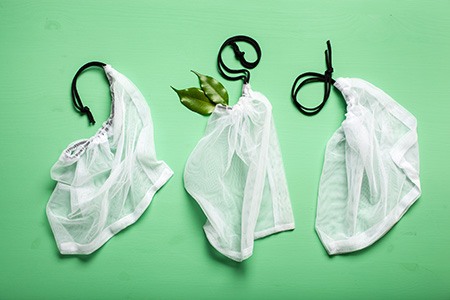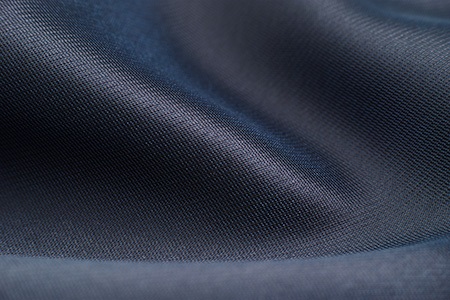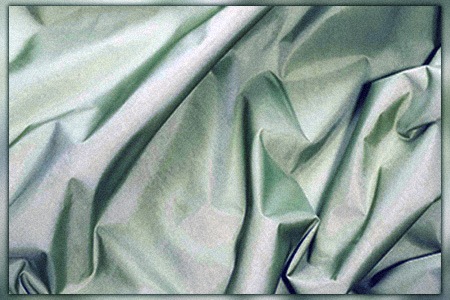Does Nylon Shrink in the Dryer? Not Usually, But...
Author: Anne Cowart | Editor: Omar Alonso
Review & Research: Jen Worst & Chris Miller

Nylon, a popular synthetic fabric known for its strength, durability, and versatility, often raises questions regarding its care and maintenance, one of the most common being, "Does nylon shrink in the dryer?"
Understanding how nylon interacts with heat and how drying methods impact this material is crucial, as improper care can lead to undesirable changes in your nylon garments.
In this article, we will delve into the specifics of how nylon responds to drying processes, particularly focusing on the use of a dryer to provide clear guidelines for preserving the size and shape of your nylon items.
Understanding Nylon Fabric

Nylon is a synthetic fabric known for its strong, durable, and lightweight properties.
Characteristics of Nylon
Nylon, a popular synthetic fabric known for its durability and resilience, has been widely used in various applications such as clothing, upholstery, and industrial materials.
Nylon's impressive strength-to-weight ratio makes it an attractive option for manufacturers seeking to create durable and lightweight products. For instance, in textile production, nylon is often chosen for producing sportswear due to its ability to wick away moisture while maintaining breathability.
Furthermore, nylon's high melting point ensures the material won't shrink or deform at room temperature or when exposed to cold water.
Types of Nylon Fabric
Nylon fabric is a versatile and widely used synthetic material that comes in different types depending on various manufacturing processes and blended fibers.
One common type of nylon fabric is Nylon 6, which has excellent tensile strength, making it suitable for items that need to withstand stress, such as backpacks or automotive parts.
Another popular variation is Nylon 66, known for its higher melting point and exceptional stretch resistance compared to other nylon forms. Due to its highly durable and flexible nature, this nylon type is often found in swimwear, lingerie, and high-performance sportswear.
Understanding the specific characteristics of each type of nylon fabric can help users make informed decisions when choosing the right material for their needs while keeping shrinkage tendencies at bay with proper care methods.
Can Nylon Shrink in the Dryer?

So, does nylon shrink in the dryer? Not always, but yes, Nylon can shrink in the dryer under specific conditions, including very high heat. However, there are ways to prevent this from happening.
Factors That Influence Shrinkage
One of the critical factors affecting fabric shrinkage is the absorption of water by clothing fibers. During washing and drying processes, fibers can swell up as they absorb moisture, temporarily causing garments to become slightly more prominent.
As these fibers dry out, they can contract and lead to shrinking. So will nylon shrink? It absolutely can.
A typical example involves nylon blends containing elements like cotton or other natural fibers. These mixed fabrics often have an increased chance of shrinking compared to pure nylon due to their composition – particularly if exposed to high temperatures when washed or dried.
It is essential for individuals who own clothing made from these blended materials to follow proper garment care instructions closely, including selecting appropriate washing temperatures and using low heat settings during drying cycles when necessary.
Common Misconceptions About Nylon Shrinking

Several misconceptions about nylon shrinking can lead to damage or improper care of your garments. Does nylon shrink in the dryer? It can, but not for all the reasons you think.
By understanding these common myths and taking proper care of your clothing items made from nylon fabrics, you can ensure they last long without succumbing to unwanted shrinking or stretching.
Nylon Doesn't Shrink: One common myth is that nylon cannot shrink at all, which is not valid. Contrary to popular belief, nylon can indeed shrink under certain conditions, particularly when exposed to high heat, such as in a dryer or during ironing
Nylon and Polyester Behave the Same Way: Both synthetic fabrics respond differently to heat. Polyester is more heat resistant and less likely to shrink than nylon.
Washing in Hot Water is Okay: Does nylon shrink in the wash? Hot water can cause the nylon to shrink. Washing nylon items in cold water is best to avoid hot water. Don't take a shortcut like we do with drying lights and darks together, etc.
Air-Drying Causes Shrinkage: Air-drying is one of the best methods to prevent nylon from shrinking. It's the heat from the dryer that's likely to cause shrinkage.
All Nylons Behave the Same: There are various types of nylon, and their reactions to heat can vary. Always check the care label on your garment for specific instructions.
Ironing Nylon is Safe: While nylon can be ironed, it should be done on the lowest setting. The high heat from ironing can also lead to shrinkage.
Other Ways Nylon Can Shrink
In addition to high temperatures, nylon fabric can shrink due to other factors, such as prolonged exposure to sunlight and chlorine. Over time, the fibers in nylon can break down when exposed to UV rays or harsh chemicals found in swimming pools.
This can lead to decreased durability and the appearance of shrinkage.
Another way that nylon may shrink is through repeated washing and friction. Aggressive washing and drying cycles can cause fibers to rub against each other, making them tangled or even break apart entirely.
To preserve the integrity of your nylon garments, consider hand-washing them with a gentle detergent or machine-washing on a delicate cycle with similar fabrics.
Tips for Preventing Nylon Shrinkage

Does nylon shrink in the dryer? To prevent nylon shrinkage, it is recommended to wash in cold water, air-dry or use low heat settings when drying, avoid overloading the dryer, and consider pre-shrinking fabric before sewing.
Wash in Cold Water
Washing garments made of nylon in cold water is highly recommended to prevent nylon fabric from shrinking in the dryer. Hot water can cause fibers to contract and expand, leading to shrinkage.
Plus, cold-water washing is an eco-friendly option that can save energy costs. Not only does washing clothes in colder water reduce the likelihood of shrinkage and fading, but it can also help reduce wrinkles without harsh chemicals or excess heat.
Air-Dry or Use Low Heat Settings
To prevent nylon clothing from shrinking, it's recommended to air-dry them instead of using a dryer. Choose the lowest heat setting possible if you need to use a dryer. High dryer temperatures can damage the fibers in nylon and cause shrinkage or other types of damage like discoloration or fabric weakening.
Even if you're not washing your clothes yourself but have them dry-cleaned instead, which doesn't take too long, it's important to let your cleaner know that special care is required for delicate fabrics like nylon.
They'll be able to ensure proper cleaning techniques are followed in order to prevent any unwanted shrinking or stretching that could happen during the process.
Avoid Overloading the Dryer
To prevent nylon fabric from shrinking in the dryer, it is important to avoid overloading the machine. Overcrowding your dryer means there won't be enough room for air to circulate, leading to fabrics becoming tightly packed together and causing them to shrink.
Another way you can help reduce the risk of shrinkage is by using a low-heat setting on your clothes dryer. High temperatures are known for causing synthetic fabrics like nylon to shorten, so reducing heat exposure can go a long way in preserving your garment's size and shape.
Overall, it's safe to say that preventing nylon fabric from shrinking involves extra care when doing laundry.
Consider Pre-Shrinking Fabric Before Sewing
Pre-shrinking fabric before sewing is an essential step, particularly when working with fabrics prone to shrinkage. This process involves washing the fabric before use, either by hand or in a washing machine, to minimize shrinkage in the finished garment.
Failure to pre-shrink can lead to frustrating results such as clothes not fitting correctly after their first wash or seams puckering.
Fabrics like nylon and cotton often require pre-shrinking because they shrink excessively during washing and drying. Preparing these fabrics beforehand will ensure they stay the same size after being sewn into garments.
How to Care for Nylon Fabric

Proper care is essential to ensure that your nylon fabric lasts longer and maintains its quality. Firstly, washing your nylon fabrics in cold water is best, as hot water can cause the fibers to shrink or become distorted.
When it comes to drying nylon fabric, air-drying is the best option if possible, but if you need to use a dryer, opt for low heat settings or tumble dry on a delicate cycle. Air drying can take longer than you may want.
Another tip is to consider pre-shrinking fabric before sewing it together so that any potential shrinking will occur before garments are made.
Lastly, remember that proper storage also affects the longevity of nylon fabrics.
By following these simple tips for properly caring for your nylon fabric, you'll significantly extend its lifespan while maintaining its durability and quality over time!
So Does Nylon Shrink in the Dryer?
In conclusion, nylon fabric is one of the most popular synthetic fabrics used in clothing manufacturing. While nylon doesn't shrink much on its own, there are circumstances where it can shrink in the dryer.
Factors such as high heat and blended fibers like spandex can cause shrinkage. However, by following tips for preventing shrinkage and properly caring for your nylon clothes, you can ensure they maintain their stability and fit over time.
We hope our guide provided you with enough knowledge to understand this concept and prevent your nylon belongings from any shrinking. So does nylon shrink in the dryer? It can, depending on how you deal with it. Use the info above, and happy washing!




